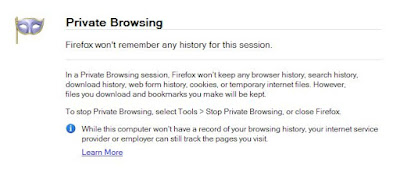The lords of Enron cooked their books. They overstated their profits by hiding a billion dollars in losses, thus driving up the price of their stock. Their accountants winked at the subterfuge, then shredded the documents. Before it all came crashing down in the largest bankruptcy in history, the executives got rich while their employees and stockholders got screwed.
It's an outrage! It's a scandal! And it is, of course, a time-honored American tradition.

America has a grand and glorious history of stock chicanery. In the early days of our history, stock market skulduggery was a perfectly respectable way to achieve wealth, although not quite as respectable as slave trading or stealing land from the Indians.
Much of America's awesome industrial colossus was built on financial scams. The 19th-century railroad barons considered stock fraud an indispensable business tool, as much a part of their working lives as bribing legislators or hiring Pinkertons to beat the bejesus out of union organizers.
Stock scamming is the kind of crime that attracts people who are well-bred, well-dressed, well-mannered. Financial crooks tend to be respectable, patriotic folks who demonstrate their patriotism by giving large sums of money to America's hardworking politicians, asking nothing in return except perhaps the teensy tiniest little amendment to the tax code.
Some of the greatest names in American history made their fortunes through shameless chicanery—Vanderbilt, Morgan, Rockefeller, Stanford, Gould, Kennedy. But you don't have to be a blue blood to succeed at financial swindling. America is the land of opportunity, a place where a poor Italian immigrant named Charles Ponzi could rise from rags to riches by inventing a scam so beautiful that it still bears his name.
"Really, there is no limit to the cons and swindles that have been seen over the years," says former labor secretary Robert Reich, a connoisseur of big-money scams. "The human mind is capable of inventing very innovative products and services—and also extraordinarily innovative swindles."
The Enron scandal brings back fond memories of the great American scams of yore. Here is a rogue's gallery of America's financial crooks, a small sampling of the scalawags, schemers and scoundrels who have bilked and swindled Americans over the centuries:
Wall Street's First Scandal
In the 1790s, when stocks were sold outdoors on Wall Street, speculator William Duer nearly destroyed the fledgling market.
British-born, Eton-educated, a former member of the Continental Congress and a New York judge, Duer had made his fortune selling supplies to George Washington's army. After the Revolution, Alexander Hamilton appointed him assistant secretary of the treasury, but Duer quit the job when he learned that federal law prohibited Treasury officials from speculating in federal securities.
Free of this inconvenient rule, Duer promptly began using his inside knowledge of the Treasury Department to speculate in bank stocks, using large sums of money borrowed from banks and his rich friends. Meanwhile, an audit of Duer's books at the Treasury Department found $238,000 missing. Hamilton ordered the Treasury to sue Duer for the money.
That caused Duer's financial empire to collapse, which bankrupted many of his creditors, bankers and brokers, which in turn caused a financial panic on Wall Street. While Duer went to debtors' prison, 24 Wall Street brokers met under a buttonwood tree in 1792 to draw up the first rules to regulate trading.
" 'Tis time," Hamilton wrote, "there should be a separation between honest Men & knaves, between respectable Stockbrokers . . . and mere unprincipled gamblers."
"Finding that line of separation," wrote John Steele Gordon in "The Great Game," a history of Wall Street, "has occupied the finest minds of Wall Street and the government ever since, with mixed results at best."
Robber Barons
The Civil War was quite unpleasant for many Americans but it was great for Wall Street.
Many of the era's foremost robber barons—J.P. Morgan, John D. Rockefeller, Andrew Carnegie, Jay Gould—dodged the draft by paying $300 to hire a substitute. This modest investment left them free to spend the war years getting rich instead of getting shot. Many on Wall Street, including Morgan, made a fortune speculating in gold, the price of which rose against the dollar with each defeat of the Union Army. Appalled, President Lincoln announced that he hoped every gold speculator "had his devilish head shot off."
Meanwhile, Morgan was financing a deal to buy 5,000 rifles from an Union Army arsenal in New York for $3.50 apiece, then sell them to the Union Army in Virginia for $22 each. The rifles were defective—causing soldiers to shoot their thumbs off—but a judge ruled the deal legal. Morgan earned a 25 percent commission, plus interest.
But those profits were peanuts compared with the money made in the railroad business after the war.
In the 1860s, the federal government subsidized the building of a transcontinental railroad by granting millions of acres of free land to two railroad companies, the Union Pacific and the Southern Pacific. Eager to line their pockets at the expense of their stockholders, Union Pacific management formed a dummy construction company with an impressive-sounding French name, Credit Mobilier, and hired Rep. Oakes Ames as president. Credit Mobilier charged Union Pacific about $100 million to build the railroad—nearly twice what the job actually cost. The rest of the money went to Credit Mobilier's stockholders, a group that included many of Ames's congressional cronies and Vice President Schuyler Colfax, who had been bribed with cheap stock to look the other way.
There were congressional hearings and angry editorials and a federal lawsuit, but ultimately the scammers of Credit Mobilier went free, considerably richer for their very modest labors.

Fleecing the Commodore
The most colorful stock swindle in American history came in 1868, when Commodore Cornelius Vanderbilt, proprietor of the New York Central Railroad, attempted to take over the rival Erie Railroad, which was controlled by three of the most crooked rascals ever to sell stock—Daniel Drew, Jay Gould and Jim Fisk.
Vanderbilt, one of America's richest men, instructed his brokers to buy every Erie share they could find. Drew, who was Erie's treasurer, responded by printing up more Erie shares—tens of thousands more. Peeved, Vanderbilt prevailed upon a judge he had on his payroll to issue an injunction forbidding Erie to issue any more stock. Drew responded by getting a judge who was on his payroll to order Erie to keep printing stock.
"If this printing press don't break down," said the flamboyant Fisk, "I'll be damned if I don't give the old hog all he wants of Erie."
When Vanderbilt's judge issued a warrant for the arrest of Drew, Fisk and Gould, the trio fled across the Hudson River to New Jersey with $7 million of Vanderbilt's money. They took up residence in a Jersey City hotel and hired cops armed with cannons to protect them from arrest.
Next, the battle shifted to the legislatures of New York and New Jersey, where agents for each side generously spread around bribe money, hoping for favorable legislation. Gould himself appeared in Albany, carrying a trunk that was, the New York Herald reported, "stuffed with thousand-dollar bills which are to be used for some mysterious purpose in connection with legislation."
Ultimately, Vanderbilt failed to take over the Erie. But he wasn't hurt too badly: He managed to unload his 100,000 Erie shares in London. The real losers in the affair were Erie's other stockholders, who saw the value of their shares diluted by nearly half.

Ponzi's Scheme
Charles Ponzi came to America around the turn of the 20th century, a poor Italian lad armed with nothing but a dream and a devious mind.
He started out with small swindles that didn't always pay off—he was jailed in Atlanta and Montreal—but he refused to give up his dream.
In Boston in 1919, Ponzi founded the presciently named Securities and Exchange Co. and guaranteed investors a 50 percent profit in 45 days. And he kept that promise—for a while. The first investors were paid with money obtained from later investors. Thrilled, they touted Ponzi's magic to their friends. By the summer of 1920, Ponzi was taking in $250,000 a day—so much cash that he was stashing it in desk drawers, file cabinets, even wastepaper baskets.
He bought hundreds of suits, a dozen gold-handled canes, a limousine and a 20-room mansion in the tony Boston suburb of Lexington. He should have taken the money and run. He couldn't keep paying early investors with the money from later investors, particularly since he wasn't actually investing the money. The Boston Post unmasked his scam and he spent a decade in jail.
On his way to prison, a reporter asked him to explain his actions, saying that the public deserved an explanation.
"The public deserves exactly what it gets," Ponzi replied. "No more, no less."

Master of Hounds
After the stock market crashed in 1929, Congress investigated Wall Street, exposing countless instances of chicanery, skulduggery and plain old fraud. Liberals called for the creation of a federal agency—the Securities and Exchange Commission—to regulate and police the market.
Richard Whitney, president of the New York Stock Exchange, disagreed. Whitney told Congress that the stock exchange could police itself without any interference from meddlesome bureaucrats.
Alas, Whitney proved to be an imperfect spokesman for his message. Despite his impressive Establishment credentials—Groton, Harvard, master of hounds at the prestigious Essex fox hunt—Whitney was as crooked as a pretzel. He formed a company to produce an apple liquor called Jersey Lightning but the hooch didn't sell and the company's stock tanked. So Whitney started stealing. First he stole $150,200 worth of bonds belonging to the New York Yacht Club. Then he stole $667,000 from the Stock Exchange Gratuity Fund, which had been set up to aid the widows and orphans of brokers.
Caught by stock exchange officials in 1937, Whitney demanded that they cover up his crimes. "After all, I'm Richard Whitney," he said. "I mean the stock market to millions of people."
When he was sentenced to five to 10 years in Sing Sing, cynics chortled as they recalled the title of his much-quoted speech to the Philadelphia Chamber of Commerce: "Business Honesty."

Slippery as Oil
At first, Anthony "Tino" De Angelis was known as "the salad oil king." Later, he became known as "the great salad oil swindler."
A former Bronx butcher, De Angelis was the president of Allied Crude Vegetable Oil, a major player in the commodities markets of the 1950s and '60s. Allied borrowed millions of dollars to speculate in vegetable oil futures. The loans were secured by warehouse receipts for millions of pounds of salad oil that Allied stored in huge petroleum tanks in Bayonne, N.J.
But the tanks were not full of salad oil. They were full of water, with just enough oil floating on top to fool the inspectors. De Angelis had conned some of America's biggest banks and investment firms out of $175 million. When the scandal broke in 1963, it nearly bankrupted two large brokerage houses.
De Angelis spent seven years in federal prison—years he later described as among the best of his life. "There you had peace. It was tranquil," he said. "You come outside and try to make a living and all the big guys try to shoot you down."
Phony, Phony, Phony
"It was like fixing a horse race," recalled one of the masterminds of the Equity Funding swindle of the 1960s and '70s. "We were always rigged to win."
Equity Funding sold an investment package that was a combination of mutual funds and life insurance. Customers bought a mutual fund whose dividends paid the premiums on the insurance policy. Equity then sold the insurance policies to reinsurance companies. This was profitable but not profitable enough for Equity's officials. They decided they could make more money by creating fake insurance policies, selling them to the reinsurance companies and pocketing the money.
This fraud worked well for nearly a decade. Equity officials made millions and Equity's stock rose from $6 to $90. But in 1973, says Charles R. Geisst, author of "Wall Street: A History," the scam collapsed when an Equity employee, dissatisfied with the size of his Christmas bonus, blew the whistle. After that, Equity went bankrupt, investors lost $300 million and a dozen Equity honchos went to prison.
The Wall Street Journal explained the scam to its readers in one of the most delightfully surreal paragraphs ever to grace its august pages:
"The customers didn't exist. Their mutual fund shares didn't exist. The funded loans didn't exist. The phony customers' phony pledges of their phony fund shares to buy phony insurance ultimately became numbers on a computer tape, which then printed out phony assets for Equity Funding Corp.'s phony books."

Greed Is Good
"Greed is all right, by the way—I want you to know that," Ivan Boesky told an audience of business students in 1985. "I think greed is healthy. You can be greedy and still feel good about yourself."
Boesky lived those words. He made hundreds of millions of dollars trading in stocks and bonds but he always wanted more. In an interview, he admitted that he fantasized about climbing atop a huge pile of silver dollars: "Imagine—wouldn't that be an aphrodisiac experience?"
Seeking ever more wealth, Boesky paid Dennis Levine, an investment banker with Drexel Burnham Lambert, millions of dollars for inside information on corporate takeover bids. Boesky then used the information to speculate in the companies' stocks, making tens of millions more. It was insider trading at its most lucrative.
When Levine was caught by the SEC, he ratted on Boesky. When Boesky was caught, he ratted on several other Wall Street wheeler-dealers—including Michael Milken, Drexel's legendary "junk bond king." Boesky even lured Milken to a hotel room, where they discussed their illicit deals in a conversation recorded using a microphone hidden in Boesky's clothes.
When the smoke cleared, Boesky served about 18 months in prison and paid a $100 million fine. Milken did three years and paid $200 million. Drexel went bankrupt.
Boesky's story inspired the 1987 movie "Wall Street," with Michael Douglas playing a reptilian character named Gordon Gekko—who recited, nearly word for word, Boesky's now-legendary "greed is good" speech.
Wall Street's Next Scandal
The list of financial scandals goes on and on: Ivar "The Match King" Kreuger, Bernie Cornfeld, Robert "Fugitive Financier" Vesco, the savings and loan crooks of the '80s. Now, as congressional committees, investigative reporters and the SEC struggle to unravel the Enron scandal, concerned Americans might be forgiven for wondering:
Given the history of wheeling, dealing, scheming and scamming in the world of high finance, can we expect to see more of these scandals in the future?
"It's never going to change," says Gordon, the Wall Street historian. "As long as there's a great deal of money to be made on Wall Street, there will always be people of dubious morals coming up with new ways to fleece the sheep. Welcome to capitalism."



















